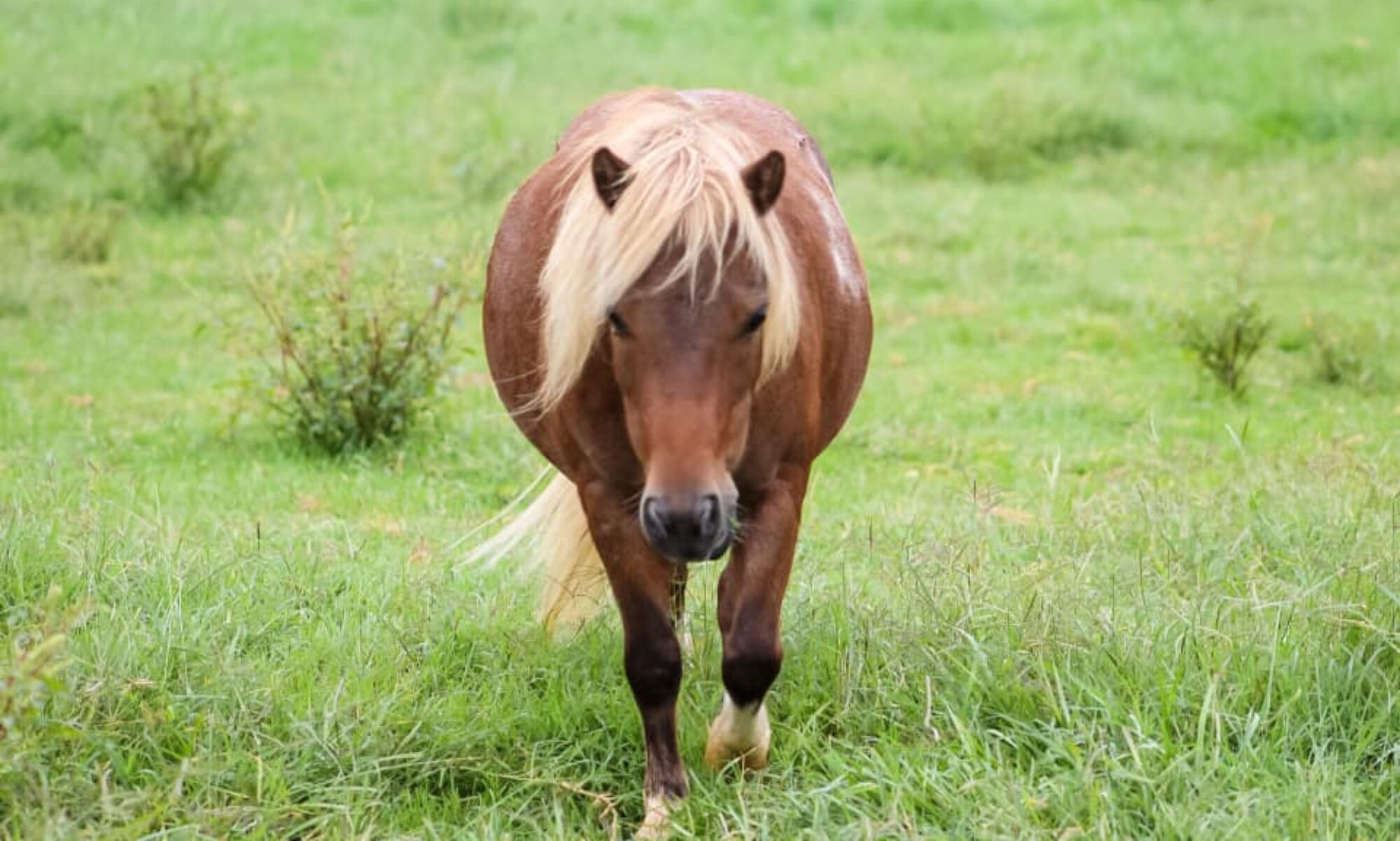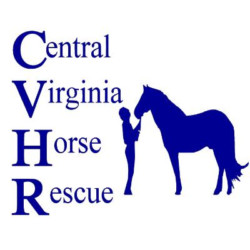In June of 2022, we were contacted by one of our partner organizations regarding six horses that needed emergency placement due to their body condition scores and lack of care being provided by the owner. Without having any more information other than the number of horses and a few photos of what they looked like at their farm, the CVHR team jumped into action and coordinated with the authorities on the intake of all six horses.
CVHR took in 28 horses from local law enforcement agencies tasked with investigating and prosecuting criminal cruelty and neglect cases in 2022. That number is 4 times the number that we assisted with in 2021. In almost all of these situations, we relied upon private donations and funding in order to pay for the rehabilitation of each horse that we took in because of lack of funding in county budgets to cover the cost of care.
Johnny at Intake: June 2022
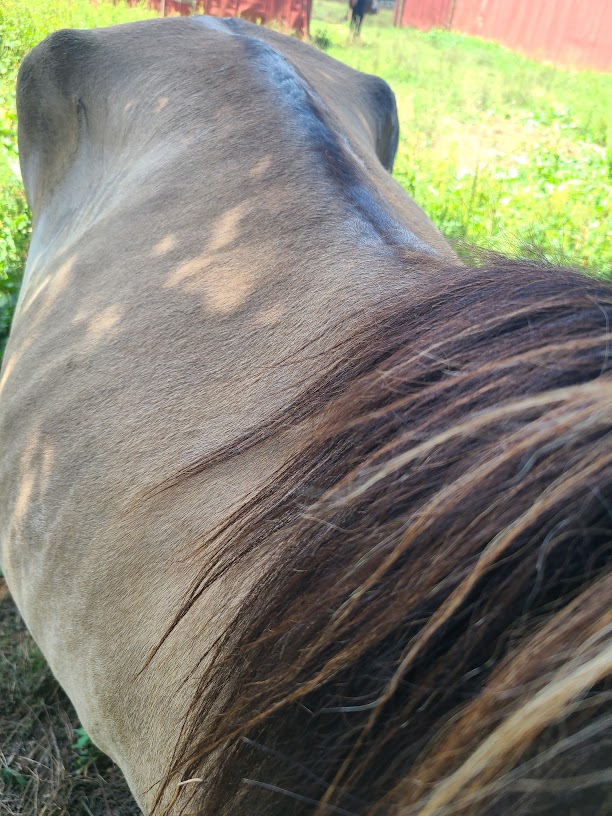
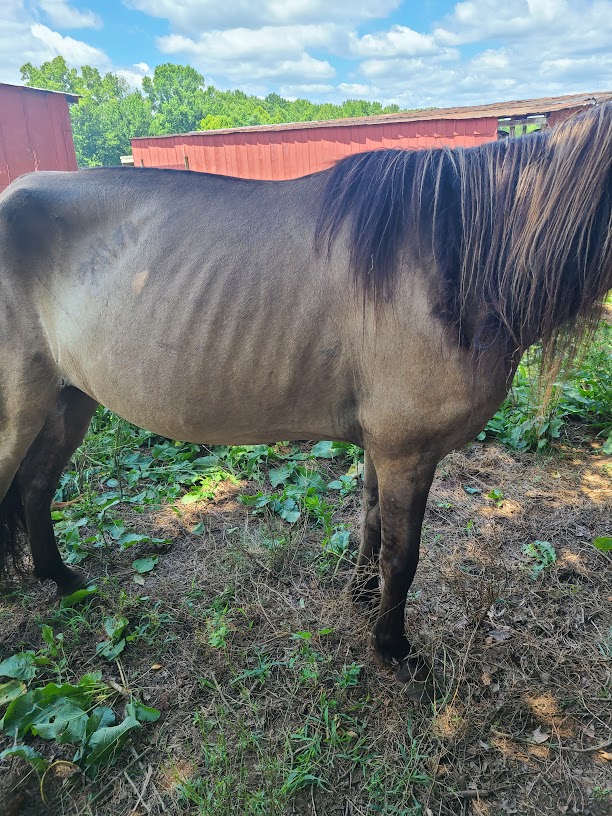
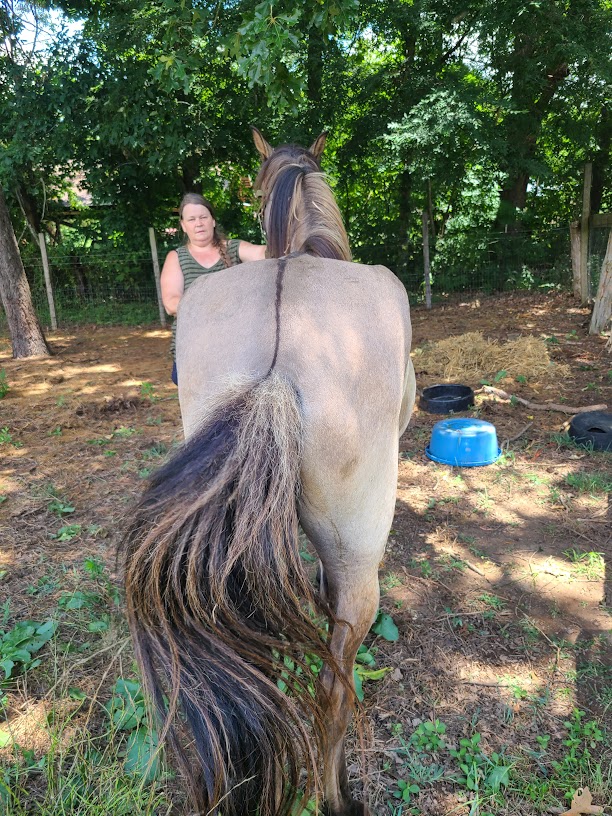
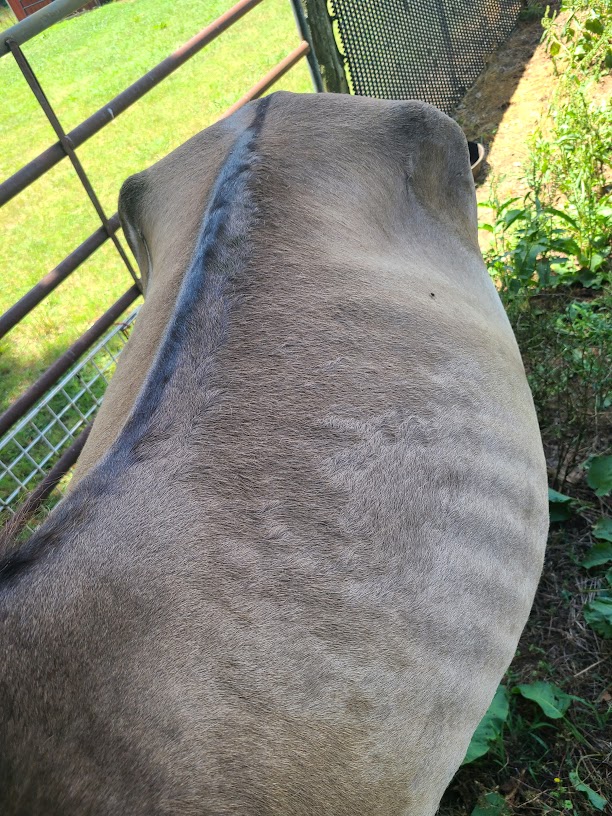
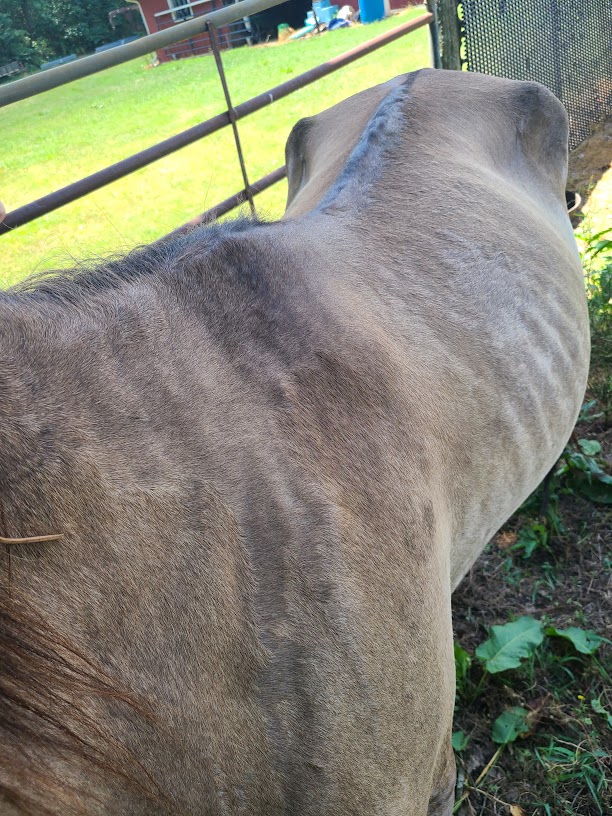
Johnny was determined to be a young Paso Fino grade gelding who was determined to be a Body Condition Score (BCS) of 3, at most, on the Henneke Horse Body Condition scoring system. A horse with a BCS of 3 on this scale is considered thin. Horses should have a BCS between 4 and 5 to be considered in healthy weight. Many factors go into determining a horses body condition score including determining the amount of at the skeleton structure that can be seen, the amount of fat covering the body and whether or not the ribs are discernable. When a horses condition gets below a BCS of 4, a veterinary exam is recommended to determine the cause of the weight loss and a modified feeding plan will be necessary in order to safely increase the horses body condition.
A typical, healthy horse will eat anywhere between 1-1.5% of it’s body weight daily. It is recommended that the diet consist mostly of forage whether that be from grass or hay. When rehabilitating an under weight horse, a typical recommendation is for the horse to consume 2% of it’s ideal body weight. For example, a horse that should weigh 1300 lbs at ideal weight would be fed a total of 26 lbs of food a day with a high percentage of that being forage.
Johnny was one of the six intakes that month that would turn into one of the longest law enforcement holds on a group of horses that we have experienced in recent years. CVHR recorded the intake of Johnny and his herd on June 25th, 2022 and provided care for 228 days until the date the horses were ultimately released. On February 8th, 2023, CVHR received the news that the judge had finally ordered the surrender of the six horses to the county and the county was finally able to legally transfer ownership.
Total cost of Johnny’s care while at Central Virginia Horse Rescue: $5,700.
Johnny in his adoptive home
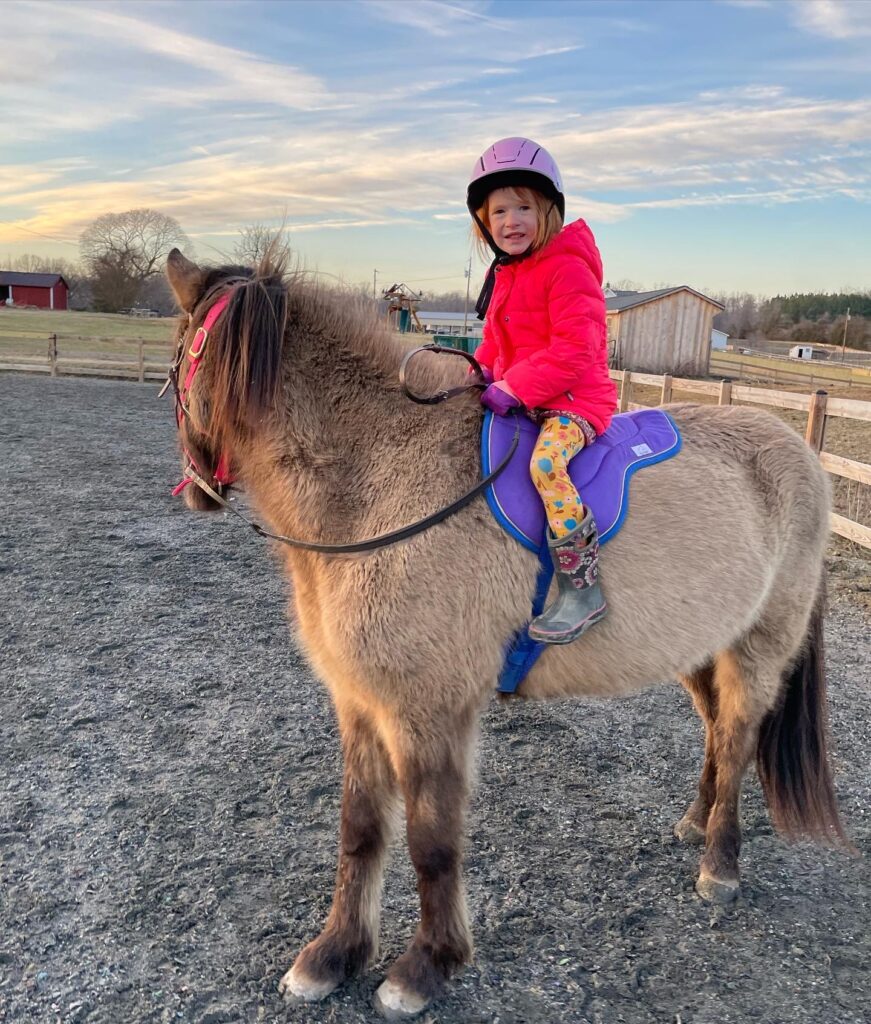
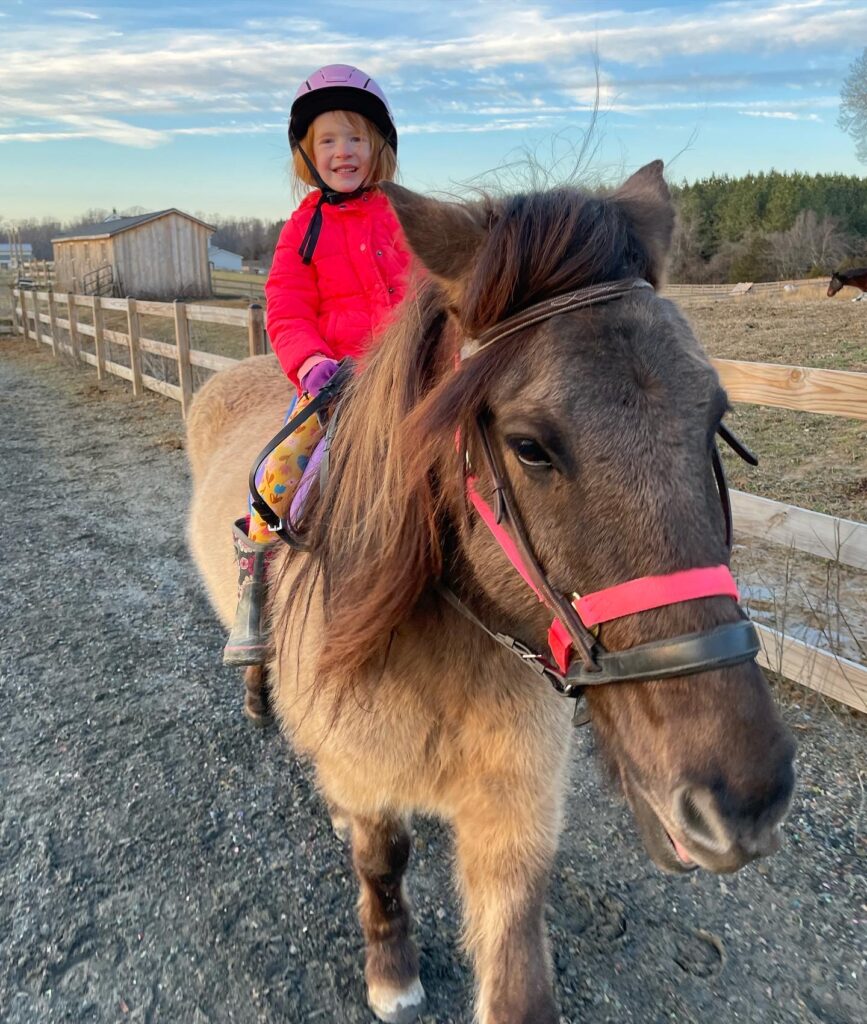
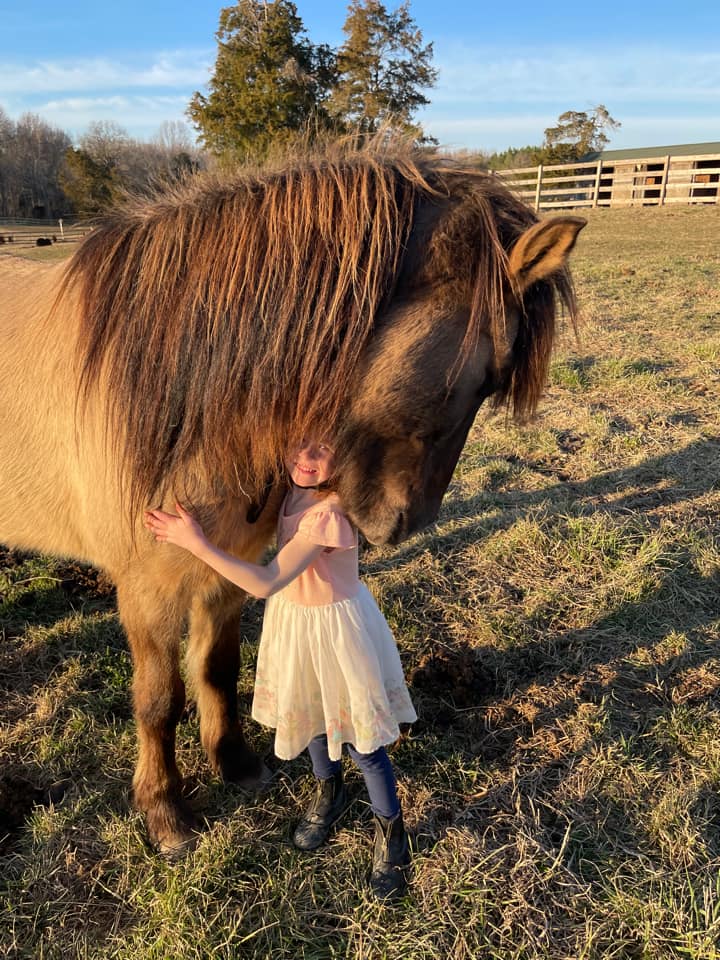
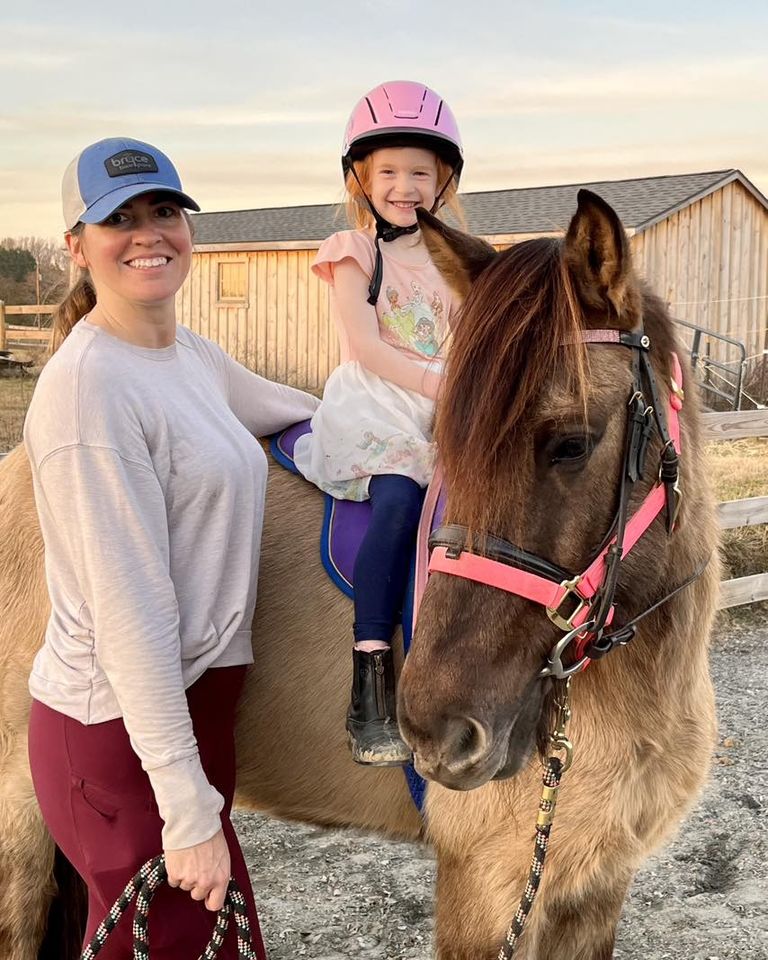
CVHR relies upon the generosity of our private donors in order to pay for the care of these traumatized horses with 70% of our funding coming from individuals and businesses who donate monthly and annually. Your gifts provide a second chance where there otherwise would be no hope.
If you are able to support CVHR, please consider a donation towards the care of a neglected or abandoned equine.
